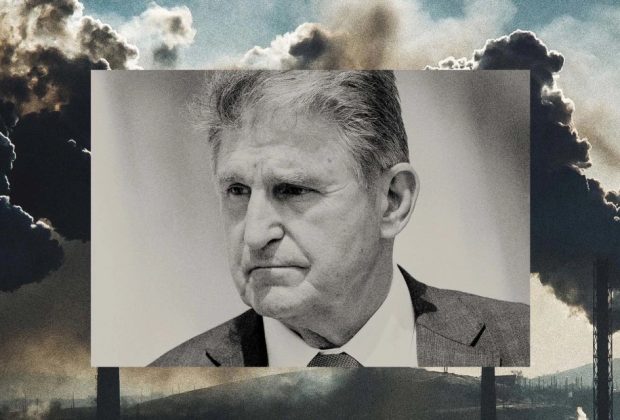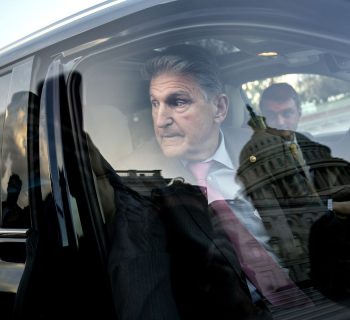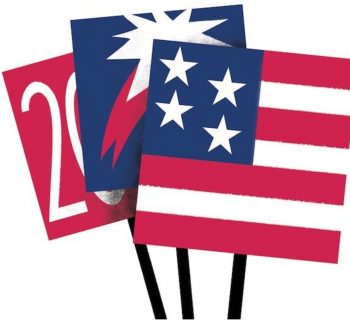The lone Democratic holdout on Build Back Better has an astonishing conflict of interest. Financial records indicate that Manchin is aware of the large sums of money he's making from his family coal business.
By Zeeshan Aleem | MSNBC Opinion Columnist | DEC. 14, 2021 | Photo credit: Chelsea Stahl - MSNBC; Getty Images
It’s been known for some time that Sen. Joe Manchin, a Democrat from West Virginia, hails from coal country and benefits from a family business in the coal industry. But a new report from The Washington Post has revealed that Manchin’s ties to the industry are greater and more direct than previously known — they show that he knows he received about half a million dollars in 2020 in returns from his investments in the business, despite his claims that he has a “blind trust” that keeps him in the dark regarding his assets.
That huge sum of money, and Manchin’s awareness of it, would seem to be of interest to the public as Manchin remains the lone Democrat in the Senate still holding out on President Joe Biden’s Build Back Better bill, a sweeping legislative package that includes a number of climate change-related policies that have narrowed in scope significantly due to Manchin’s strident pushback.
What’s worse, however, than Manchin’s dodge is that what he’s doing is perfectly legal. Due to Congress’ lax code of ethics regarding lawmaker’s investments, Manchin’s conflict of interest is permissible, and, in many instances, completely routine. In other words, what may be even more scandalous than Manchin’s conflict of interest is the fact that it's allowed.
Manchin has a lucrative family business that sells waste coal to a power plant in West Virginia that “emits air pollution at a higher rate than any other plant in the state,” according to the Post.
Under the former clean electricity provision in the Build Back Better bill, that business could’ve been hurt. Manchin played a decisive role in killing it, despite explanations from policymakers and experts that it would have lowered energy costs and created thousands of jobs in his state.
When asked about whether he’s compromised by his investment in his family business, Manchin has claimed he has no idea what’s going on with it because it’s under a “blind trust.”
But according to the Post, Manchin does know what’s going on with it — and it seems that there is in fact quite a lot going on:
[C]ontrary to [Manchin’s] public statements, documents filed by the senator show the blind trust is much too small to account for all his reported earnings from the coal company, as of his latest financial disclosure report, which covers 2020 and was filed in May.
Manchin’s latest financial disclosure report says that the West Virginia family coal business that he helped found and run, Enersystems, paid him $492,000 in interest, dividends and other income in 2020, and that his share of the firm is worth between $1 million and $5 million. He signed a sworn statement saying he is aware of these earnings, underscoring that he is not blind to them.
Government ethics experts have pointed out that Manchin has a clear conflict of interest as he weighs in on policies that directly affect the industry he’s invested in and making huge sums of money from. But members of Congress are not required to divest from assets to avoid conflict of interest.
In fact, congressional norms not only don’t require divestment from assets that would cause conflict of interest, but actually dictate that it is inappropriate for a lawmaker to recuse themselves from legislating on a specific matter purely on the basis that it could cause conflict of interest. Craig Holman, an ethics expert at Public Citizen, explained it in an email to me:
[Manchin] is directly and substantially forming climate change policies that have a direct impact on his own wealth and the wealth of his family. This is an egregious conflict of interest. However, the conflict of interest code for members of Congress is also riddled with loopholes. Members are expected to get involved in every legislative measure that comes before the body, even if there are significant conflicts of interest. The congressional rule book states that members have an obligation to their constituents not to recuse themselves from any such conflicting actions, unless the transaction would primarily impact only the member and not the industry as a whole.
So to recap: it’s not just legal for Manchin to vote on policies that he has a direct financial interest in, he’s actually expected to do, unless he meets a very high threshold for exemption, because of congressional guidance on lawmakers attending to all legislative matters before the body. For this reason, he can chair the Senate Energy and Natural Resources Committee and singlehandedly torpedo climate policies desperately needed to help save the planet — all while raking in cash from the coal industry.
And as a major Business Insider investigation has laid out in detail, it’s clear that Manchin’s conflict of interest is far from unique. Lawmakers and their staff not only regularly hold stock in companies whose fates they shape with their laws, but they also regularly violate the already-lax rules on conflict of interest in Congress.
Congress’ rules allow for systematic corruption unbecoming of any serious democracy. Lawmakers are supposed to be making decisions in service of the public good, but how can they do that when they know those decisions can reduce or increase personal wealth they could draw on for future campaigns or retirement or their children’s trust funds? Manchin’s unapologetic conflict of interest is simply shining a light on a much bigger malady in the heart of our democracy’s deliberative process.







